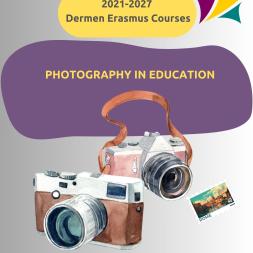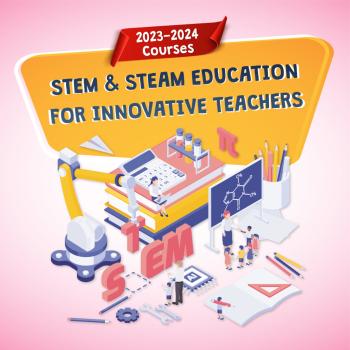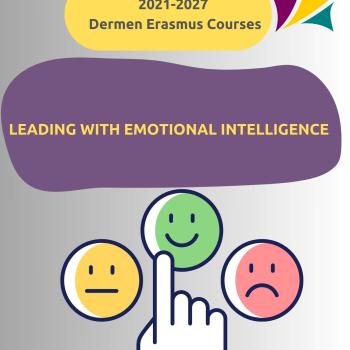
Photography in Education
Photography in education enriches learning experiences across disciplines. From enhancing visual communication to fostering creativity and documenting research, photography serves as a versatile tool. Whether capturing scientific experiments, exploring cultural nuances, or expressing artistic visions, integrating photography into education cultivates essential skills like digital literacy, visual
Description
Photography holds significant value as an educational tool, providing learners with practical skills, creative outlets, and enhanced learning experiences. Incorporating photography into educational settings offers a structured approach to developing visual literacy, critical thinking, and technical proficiency.
In a training format, learners are introduced to the fundamental principles of photography, including composition, lighting, and camera settings. Through hands-on practice and guided exercises, they learn how to effectively frame subjects, manipulate light, and adjust camera settings to achieve desired results.
Beyond technical skills, learners are encouraged to explore the creative potential of photography, experimenting with different styles, perspectives, and storytelling techniques. They learn how to use photography as a means of self-expression, communication, and personal exploration.
Additionally, learners are educated on the ethical considerations and legal aspects of photo
Learning objectives
- Developing Technical Proficiency: Understanding camera settings, including aperture, shutter speed, ISO, and white balance, to capture well-exposed photographs in various lighting conditions.
- Mastering Composition Skills: Learning the principles of composition, such as the rule of thirds, leading lines, framing, and balance, to create visually appealing and impactful photographs.
- Exploring Lighting Techniques: Understanding the role of light in photography and learning how to manipulate natural and artificial light sources to enhance the mood, texture, and dimensionality of photographs.
- Expressing Creativity: Exploring different photographic styles, genres, and techniques to develop a personal artistic vision and express ideas, emotions, and narratives through photography.
- Enhancing Visual Literacy: Critically analyzing and interpreting photographs, understanding the elements of visual language, including color, contrast, texture, and symbolism.
- Considering Ethical and Legal Issues: Gaining
Methodology & assessment
The training program utilizes a combination of theoretical instruction and hands-on practical exercises to impart photography skills. Learners engage in interactive lectures, demonstrations, and guided practice sessions to understand photographic concepts and techniques. They also participate in fieldwork, projects, and creative assignments to apply their learning in real-world scenarios.
Assessment:
Assessment in the training program is conducted through a variety of methods to evaluate learners' understanding and proficiency in photography. This includes quizzes, practical assessments, portfolio reviews, and peer critiques. Additionally, learners are encouraged to self-assess their progress and set personal goals for improvement. The assessment process is designed to provide constructive feedback and support continuous learning and development.
Materials, digital tools & other learning resources
Classic and modern cameras,studio,street photography tools,VR,presentations and more
Certification details
Hardcover format with all necessary info inserted.
Pricing, packages and other information
-
Price:400Euro
-
Course package content:
All course materials,workshops,coffee and snacks,documents and one day excursion.
-
Additional information:Description of the services and activities included in the course package (such as accommodation, meals, transport) or available at extra cost.
-
Cancellation & changes:
In the event of force majeure (e.g., wars, pandemics, serious illness):
Course Rescheduling:
Courses will be rescheduled to a later date whenever feasible, at no additional cost to participants.
Virtual Options:If in-person participation becomes impossible, virtual sessions may be offered as an alternative.
Refund Policy:In cases of force majeure, participants are entitled to a full refund of the course fee after deducting bank transfer costs.
Priority Re-enrollment:Affected participants will receive automatic priority for re-enrollment.
Regular Updates:Participants will be kept informed about course status, rescheduling, and alternative options.
Guaranteed Delivery:We do not cancel confirmed courses.
To ensure this, we engage multiple trainers for each course, allowing us to continue without interruption even if one trainer faces unforeseen challenges. -
Additional information:The options and conditions for change and cancellation, and the policy in case of unforeseen circumstances (force majeure).
Additional information
-
Language:English
-
Target audience ISCED:Primary education (ISCED 1)Upper secondary education (ISCED 3)Other
-
Target audience type:TeacherTeacher EducatorNot-for-profit / NGO staff
-
Learning time:25 hours or more
Upcoming sessions
Past sessions
More courses by this organiser




